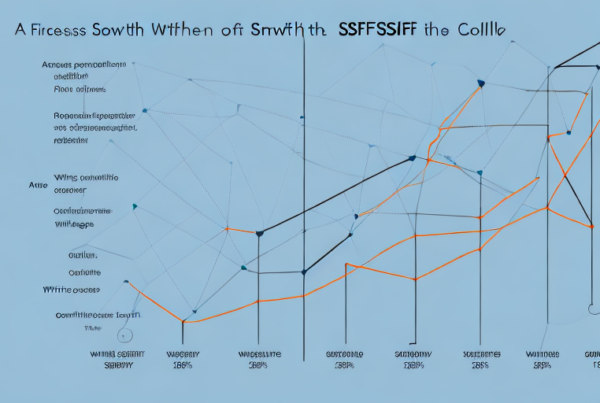As a trustee of a self-managed super fund (SMSF), it’s crucial to stay up-to-date with compliance changes. With 2023 fast approaching, there are several new compliance requirements that SMSF trustees need to be aware of. In this article, we’ll discuss these changes and their impact on SMSF members.
Understanding SMSF Compliance
What is SMSF Compliance?
SMSF compliance refers to adhering to the rules and regulations set by the Australian Taxation Office (ATO) for managing your self-managed super fund. These compliance requirements are in place to ensure that SMSFs are being managed appropriately, and the members’ retirement savings are being protected.
Managing an SMSF can be a complex process, and there are many rules and regulations that need to be followed. These regulations cover a wide range of areas, including investment strategies, record keeping, and reporting requirements.
One of the most important compliance requirements for SMSFs is the need to have an investment strategy in place. This strategy should be tailored to the specific needs and circumstances of the SMSF’s members and should be regularly reviewed and updated as necessary.
Another important compliance requirement is the need to keep accurate records of all transactions and activities related to the SMSF. This includes keeping records of all contributions, investments, and expenses, as well as any income earned by the fund.
Importance of Staying Compliant
It’s essential to understand the importance of staying compliant as an SMSF trustee. Failure to comply with the ATO’s regulations can result in financial penalties, legal action and, in the worst-case scenario, loss of your SMSF’s compliance status. Losing compliance status means that your SMSF’s income will be taxed at the highest marginal tax rate, which can significantly reduce your retirement savings.
Staying compliant also helps to ensure that your SMSF is being managed in a way that is in the best interests of its members. By following the ATO’s regulations, you can help to protect your retirement savings and ensure that they are being managed in a way that aligns with your long-term financial goals.
Compliance also helps to maintain the integrity of the SMSF system as a whole. By ensuring that all SMSFs are being managed in accordance with the rules and regulations set out by the ATO, the government can be confident that the system is working as intended and that members’ retirement savings are being protected.
In conclusion, SMSF compliance is a critical aspect of managing a self-managed super fund. By understanding the rules and regulations set out by the ATO and staying compliant, you can help to protect your retirement savings and ensure that your SMSF is being managed in a way that aligns with your long-term financial goals.
Key SMSF Compliance Changes in 2023
Changes to Contribution Caps
From 1 July 2023, the concessional contribution cap will be indexed to average weekly ordinary time earnings (AWOTE). This means that the cap will increase in line with inflation and wage growth, providing SMSF members with greater flexibility in their contributions. The non-concessional contribution cap will also increase from $110,000 to $115,000, allowing SMSF members to make larger contributions to their superannuation funds.
It is important for SMSF trustees to ensure they are not exceeding these caps to avoid financial penalties. This can be done by regularly monitoring contributions and seeking professional advice if necessary.
Updates to Pension Payments
As of 1 July 2023, SMSF trustees will be required to pay the minimum pension amount by 30 June each year. This change aims to simplify the process of calculating minimum pension payments for SMSF members and ensure that they receive their entitlements on time.
It is important for SMSF trustees to be aware of this change and to plan accordingly to ensure they meet their obligations. Failure to do so may result in financial penalties and potential legal action.
New Reporting Requirements
SMSF trustees will now be required to report to the ATO more frequently. From 1 July 2023, SMSFs with more than $5 million in assets will be required to report quarterly, with other SMSFs reporting annually. The new reporting requirements aim to improve transparency and monitor SMSF compliance more efficiently.
This change highlights the importance of accurate record-keeping and compliance for SMSF trustees. It is recommended that SMSF trustees seek professional advice to ensure they are meeting their reporting requirements and avoiding potential penalties.
Alterations to Audit Rules
From 1 July 2023, SMSFs with a history of good record-keeping and compliance risk will be able to move from annual to a three-yearly audit cycle. This change aims to reduce the burden of SMSF compliance on trustees and allow them to focus on strategic planning for their SMSF.
This change provides greater flexibility for SMSF trustees and allows them to allocate resources towards other important aspects of managing their fund. However, it is important to note that SMSFs with a history of poor compliance may still be subject to annual audits.
In summary, the changes to SMSF compliance in 2023 provide greater flexibility and transparency for SMSF members, while also placing greater emphasis on accurate record-keeping and compliance. SMSF trustees should seek professional advice to ensure they are meeting their obligations and avoiding potential penalties.
Impact of the Changes on SMSF Members
The recent changes to the SMSF regulations have significant impacts on the members of SMSFs. It is essential to understand these changes to navigate them effectively. The following are some of the impacts of the changes on SMSF members:
Adjusting Investment Strategies
One of the significant impacts of the changes is that SMSF members may need to adjust their investment strategies. With the new contribution cap changes and reporting requirements, it’s crucial to ensure that your SMSF is appropriately diversified and within the legal limits.
It is essential to review your SMSF’s investment strategy regularly and consider the impact of the new changes. You may need to adjust your investment strategy to ensure that your SMSF remains compliant with the new regulations.
Ensuring Adequate Insurance Coverage
Another significant impact of the changes is that SMSF members need to ensure that their SMSF has adequate insurance coverage. The coverage should include trustees, members, and any other associated parties to protect their personal assets.
The potential financial implications of non-compliance are significant. Therefore, it is crucial to ensure that your SMSF has adequate insurance coverage to protect against any potential risks.
Tax Implications for SMSF Members
With the changes to the contribution caps and pension payment rules, SMSF members need to understand the tax implications of these changes. For example, exceeding the contribution cap can result in additional tax being applied, and not meeting pension payment requirements may result in additional tax on investment earnings.
It is essential to seek professional advice to understand the tax implications of the changes and ensure that your SMSF remains compliant with the new regulations.
In conclusion, the recent changes to the SMSF regulations have significant impacts on the members of SMSFs. It is crucial to understand these changes and take appropriate steps to ensure that your SMSF remains compliant with the new regulations.
Preparing for the 2023 Compliance Changes
The 2023 compliance changes are set to have a significant impact on the SMSF landscape, and it’s crucial for SMSF trustees to prepare accordingly. Here are some steps you can take to ensure your SMSF is ready for the changes:
Reviewing Your SMSF Trust Deed
One of the first steps you should take is to review your SMSF trust deed. The trust deed is a legal document that outlines the rules and regulations governing your SMSF. It’s essential to ensure that your deed is up-to-date and reflects the current regulatory landscape to avoid any potential compliance issues.
When reviewing your trust deed, you should consider whether it includes any outdated provisions that may no longer be valid under the new regulations. You should also ensure that your deed allows your SMSF to comply with the new contribution caps and pension payments rules.
Updating Your Investment Strategy
The changes in contribution caps and pension payments rules may also require SMSF trustees to review and adjust their investment strategies. It’s important to ensure that your SMSF has an appropriate level of diversification, given the new regulatory landscape.
You should consider whether your SMSF’s current investment strategy is aligned with your retirement goals and risk tolerance. You may also want to review your SMSF’s investment portfolio to ensure that it’s diversified across different asset classes and sectors.
Engaging with SMSF Professionals
Finally, it’s crucial for SMSF trustees to engage with SMSF professionals to navigate these changes. Professionals such as accountants, financial planners, and auditors can help ensure your SMSF is compliant and protect your retirement savings from any potential legal or financial implications.
When selecting an SMSF professional, you should look for someone with expertise in SMSF compliance and a deep understanding of the new regulations. You should also consider their track record and reputation in the industry.
By taking these steps, SMSF trustees can ensure that their SMSF is prepared for the 2023 compliance changes and protect their retirement savings from any potential legal or financial implications.
Conclusion
Changes to SMSF compliance requirements can be daunting, with the potential for significant financial and legal implications. However, by staying informed, preparing accordingly and engaging with SMSF professionals, trustees can navigate these changes and ensure that their SMSF remains compliant and protected.


